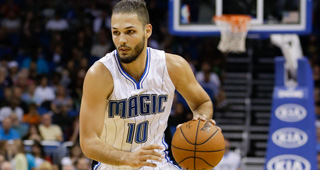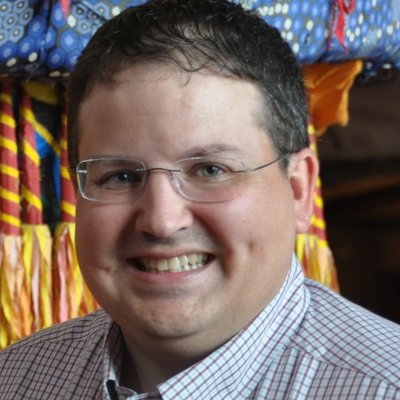After several rebuilding years since trading Dwight Howard, the Orlando Magic finally seem to be seeing an uptick in their place in the standings. Years of talent accumulation through trades and draft picks are coming together to form a talented, still developing roster.
Like the Boston Celtics, Orlando is in a place where their asset chest is starting to overflow. However, the Magic are different in that their assets are primarily already on the court, where the Celtics are a mix of future draft picks and young talent.
Orlando is flush with players either on Rookie Scale deals or fresh off Rookie Scale deals. In the past year, the Magic have signed Nik Vucevic to a four-year extension averaging $12 million per season, and signed Tobias Harris to a four-year deal averaging $16 million, but with an interesting structure that sees it rise for 16-17 and then fall for the final two years. Orlando has committed big dollars, but not maximum money, to those two young pieces.
Both of those players were key pieces acquired in trades as a part of the post-Howard rebuild. Vucevic came back in the Howard deal itself, while Harris was attained when the team dealt J.J. Redick away to the Milwaukee Bucks. Committing to Harris and Vucevic, but not maxing them out, allowed the Magic to retain flexibility. Both players are still tradable, or could be kept aand added to.
The key for the Magic is deciding if Vucevic and Harris are a fit next to each other as the frontcourt of the future. Both players are good offensively and plus rebounders. Neither is viewed as anything above an average defender or a rim protector. This often puts the Magic in tough spots, as opposing guards and wings make forays to the rim without resistance. This has happened repeatedly this season with John Wall, Russell Westbrook and James Harden. Those players are going to get to rim no matter what, but the Magic offer little resistance once they get there. The key is making sure the drives are cut down in number. This is where the wing defense of Elfrid Payton, Victor Oladipo and Evan Fournier comes in. All are solid, active, and aggressive defenders. By making opposing players work, they help the bigs.
Payton was acquired in a draft night trade, when the Magic made a deal with the 76ers to acquire his rights. While Philadelphia seemed to get the best of the Magic in that deal (trading the rights to Dario Saric and returning a first rounder owed to the Magic back to the 76ers), it was the right move for Orlando. They needed a long term solution at point guard and Payton seems to be that guy. He’s still on his Rookie Scale deal for a few more seasons.
Oladipo is in a similar situation. He has one less year of team control, but the flexibility with his deal is key for the Magic. Oladipo was the first pick in the rebuild and the new face of the franchise. The fit of Payton and Oladipo together is a question. While both are good defenders and both can push pace and get to the rim, there is a considerable lack of consistent shooting. This makes things that much harder on the bigs and wings attacking the rim, as defenses can and do collapse off Payton (more so) and Oladipo (less so) to help inside.
That brings us to why Evan Fournier has been so key. He’s off to a great start offensively. He’s shooting on par with his career numbers from the outside, but he’s attacking the rim better than he ever has before. He’s finishing through contact and drawing fouls at a better rate than previous seasons. His defense has been active on the perimeter and he competes every single night. It was a bit of a surprise the Magic couldn’t come to an agreement with him on a contract extension, but they retain the ability to match any offer as Fournier is scheduled to a Restricted Free Agent after the season.
And therein lies the rub. As Jonathan Tjarks wrote recently, the Magic have a bunch of wings. Can Orlando commit years and money to Fournier when his best positions are shooting guard and small forward? Oladipo is seen as the long term guy at SG. Some still see Harris’ best position as SF.
And behind all of these guys are the Magic’s two key youngsters, Aaron Gordon and Mario Hezonja. Gordon is an energy filled pogo stick who can play both SF and PF. His offensive game is developing at a rapid rate. He can get to the rim with relative ease using either athleticism or strength. His shot is coming around and he’s taking it with confidence. His defense is solid at either spot, and he can switch on to guards and hold his own.
Hezonja is a SG/SF version of Gordon. His athleticism is at the top of the charts amongst comparable players. His shot is already solid. And no one can say he lacks for confidence. He’s not afraid to mix it up and get in to it with anyone. The energy both Gordon and Hezonja bring when they get in the game is contagious. It also infects the crowd. There is a palpable buzz in the Amway Center whenever the Magic play lineups that feature both of them. Add Oladipo and Payton to the mix, and you have an athletic core that no other team can match.
Because of the presence of Oladipo, Hezonja, Gordon and Harris, who all play the same spots at Fournier and are under team control, do the Magic need to commit to him? Orlando also has to make decisions on DeWayne Dedmon, Andrew Nicholson (both RFAs), Jason Smith and Devyn Marble (fully non-guaranteed prior to 7/15/16).
Nicholson seems likely to move on, as there is no need for him on this roster. Dedmon has developed in a solid backup center that provides defense and rebounding. The Magic would likely want to retain him if the price is right. Smith is a nice player, who could return on a cheap contract. Marble’s place on the squad will likely all come down to the availability of roster spots.
In addition to the pending free agents, the Magic also have Shabazz Napier, C.J. Watson and Channing Frye under contract for next year. Napier is on his Rookie Scale deal and has value as a backup PG. Watson is signed to a deal that is below the Non-Taxpayer MLE amount. He also provides value as a backup PG, who can swing over to play some SG. And Frye, controversial as his contract may be, provides much needed shooting from the PF/C position. None of the Magic’s other big men are threats from deep. Frye’s deal is a declining deal in terms of dollars and is likely to settle somewhere close to the average salary over the next couple of seasons.
And finally, the Magic project to have enough money available to sign a max free agent, or get really close, pending their decision on Fournier. Without a true superstar on the roster at this point, the Magic could choose to chase a major free agent. They made a run at Paul Millsap this summer. Kevin Durant is an impossibility, but one can envision seeing them make a run at Millsaps’ teammate Al Horford. Horford would fit nicely at power forward in between Vucevic at center and Harris at small forward.
The main thing Rob Hennigan has done is he has given his team, and maintained, remarkable flexibility. He took over with the task of trading Dwight Howard and rebuilding the franchise. The player choices have all been solid enough to date and there is another future pick coming from the Lakers at some point as well. The original coaching choice of Jacque Vaughn didn’t work out, but Scott Skiles has the Magic playing better basketball. The team has direction and rotations seem solid this year vs. prior years. Skiles has the team running and playing hard, especially on defense.
What happens next is crucial for the future of the franchise. And as hard as it may be to believe, a large portion of that future will be determined by what happens with a SG/SF from France who originally projected as a decent backup. Beyond Kevin Durant, Al Horford and Mike Conley, no free agent may decide the direction of their team more than Evan Fournier.



